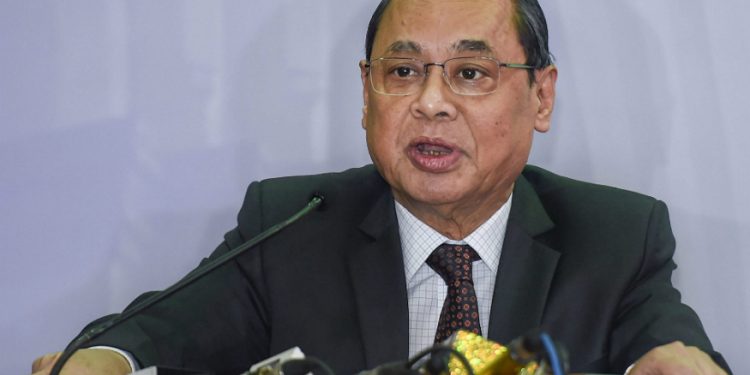In less than six months since his retirement as Chief Justice of India, Ranjan Gogoi has been nominated by President Ram Nath Kovind for Rajya Sabha. Gogoi retired November 17, 2019, after penning several key judgements that have largely been favourable to the ruling dispensation and its interests. Gogoi had his stint as CJI marred by allegations of sexual misconduct raised by a former woman employee of the apex court. The judge was exonerated, though, by a three-judge in-house committee probing the allegations. It is not without precedent that a former ‘judge of value’ to the ruling dispensation has landed a post-retirement sinecure.
According to a research paper published in December 2017, judges who have authored favourable judgements in important cases were more likely to get prestigious government jobs. The conclusions of the paper were based on an analysis of data on post-retirement appointments of Supreme Court judges from 1999 to 2014. In numerical terms, the authoring of a judgement in favour of the government raised the chances of a judge landing a sinecure post retirement by 15 to 20 per cent. For Gogoi, the chances were brighter than those of many others as he was involved with several key judgements- the Ayodhya Ramjanambhoomi land dispute and National Registry of Citizens (NRC) implementation in Assam under so-called Supreme Court supervision – topping the list. He was also involved in the judgement on the Rafale deal, giving a clean chit to the government.
The vacancy was created due to retirement of KTS Tulsi. By offering Gogoi membership of the Rajya Sabha, the ruling party is only fixing the needle of suspicion on itself. The action is further confirmation that something suspect lurks behind the judgements delivered in the key cases, and thereby the pronouncements lose moral weight due to this nomination. In its last term, the government had introduced several novel measures and appeared to pursue a holier than thou approach to governance. All blame for bad governance was conveniently placed at the doors of the Congress governments of the past. But it appears to be repeating the mistakes of the Congress while condemning every historical action of that party. Also, if Justice Gogoi is indeed squeaky clean as a judge of the highest court in the land, the government by its action has brought him disrepute. The judgements he has delivered, particularly the one in resolving the Ayodhya dispute, are milestones in the annals of the country’s legal system. An amicable settlement was essential and courts in the past were unable to deliver judgements that were balanced. In any case, the dispute had to be ended considering how long it had been part of dockets across the judicial system. Gogoi, however, does have a lot of explaining to do for some of his questionable decisions. For instance, he had formed a three-judge bench to probe the sexual harassment allegation against him by a woman employee of the Supreme Court. Generally, such an allegation against a person holding one of the top posts in the country would have compelled that person to resign. Instead, Gogoi remaining as CJI, got the enquiry conducted by junior judges whose report was obviously in his favour. While this slur of moral turpitude lurked in the background, Gogoi went all the way in the Ayodhya Ramjanambhoomi case to become partisan by catering to the desires of the ruling clique. The obedient and cooperative acts of Gogoi fetched him this non-party nomination.







































